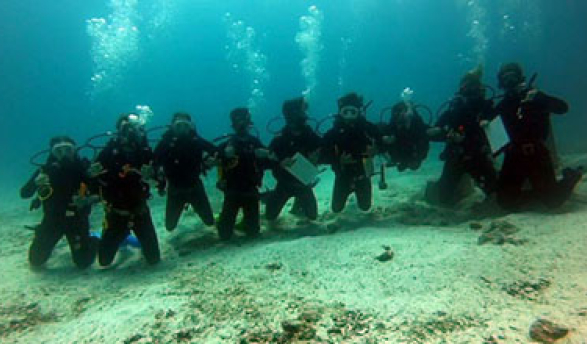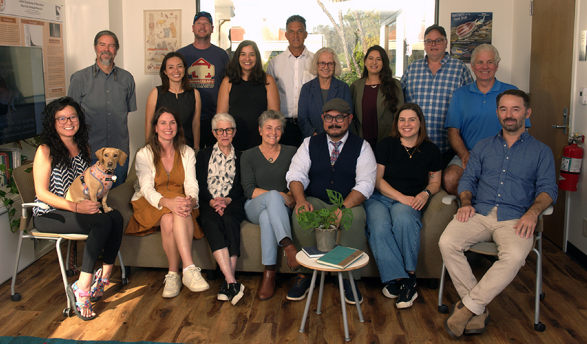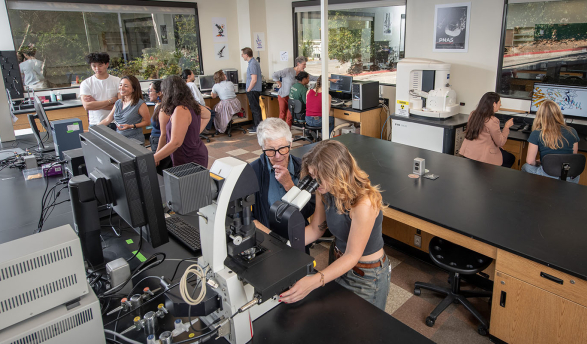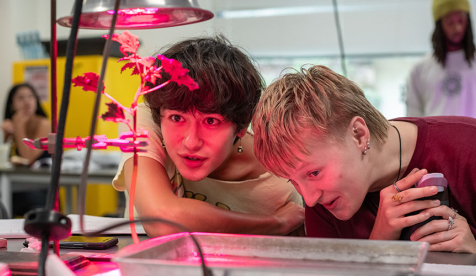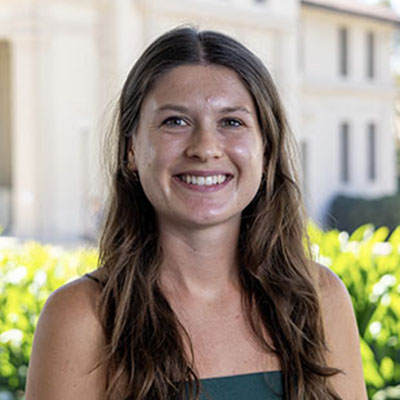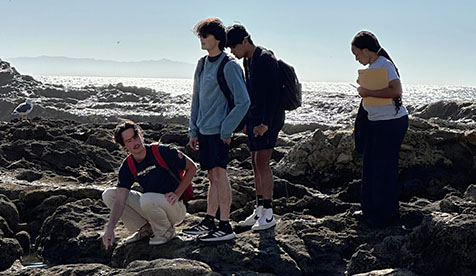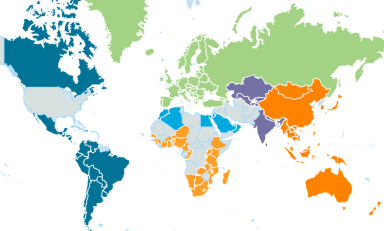Are you a curious, creative, and collaborative person who wants to understand how life works? As a biology major at Occidental College, you will explore the natural world from molecules to ecosystems through hands-on research and fieldwork.
Earn Your Biology Degree from Oxy
As part of the Occidental College Biology undergraduate program, you will study living systems through direct research and scientific inquiry. You will learn to form hypotheses, design and conduct experiments, and interpret data while investigating topics such as genetics, ecology, physiology, and evolution. Faculty mentors will guide you through lab and field experiences that strengthen your understanding of biology from the molecular to the global level.
Situated between the Pacific Ocean, the San Gabriel Mountains, and the Mojave Desert, Oxy offers unparalleled access to diverse ecosystems and field sites. You can conduct local studies or pursue international research opportunities, including programs in Costa Rica and beyond. By earning your biology major at Occidental, you will gain the scientific and analytical skills needed for careers in medicine, conservation, biotechnology, data science, and research. These skills will help you shape the future of medicine, environmental policy, conservation, public health, and biotechnology right in the heart of Los Angeles.


